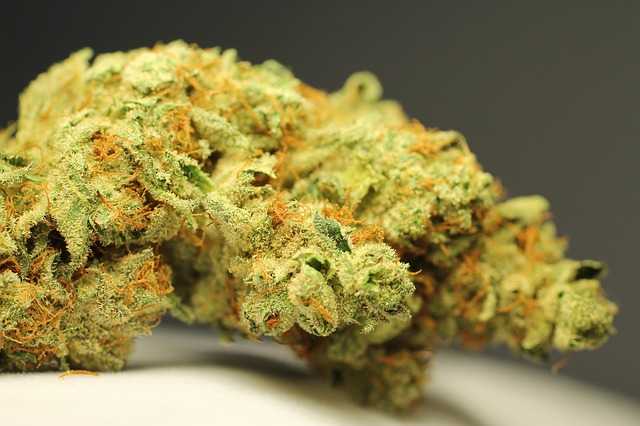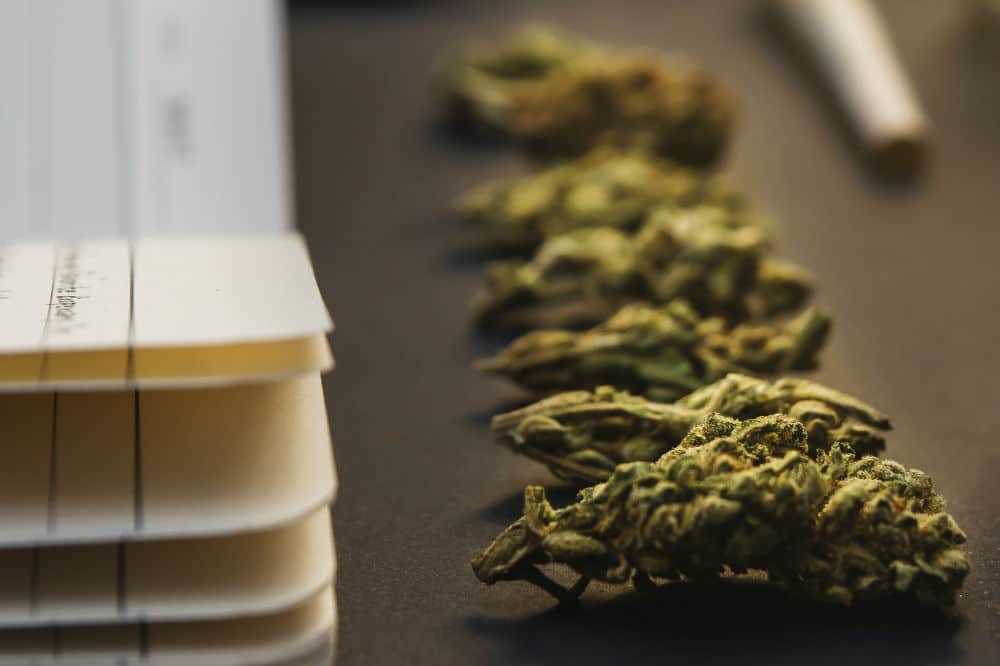How can Cannabis be effectively and safely used to treat depression or anxiety?

We hear a lot about how cannabis has helped people suffering from a wide variety of physical ailments, from cancer to glaucoma to AIDS to arthritis. Stories about using cannabis to treat psychological disorders such as depression, however, are much less commonplace, for good reason. Many people hesitate to recommend a substance such as cannabis for depression, as misuse could have unintended negative consequences. Fortunately, as cannabis loses the stigma that has for too long been associated with its use, more people are speaking out about how cannabis has helped them deal with mental illness. Doctors and researchers as well are beginning to come out in favor of cannabis and its potential to treat psychological disorders. Depression from post traumatic stress disorder in particular is being treated with cannabis more and more frequently.
Depression – What exactly is it?
Depression is a complex mood disorder, that isn’t very well understood. It most often leaves sufferers unable to work, eat, sleep or have fun due to their inability to feel any joy or pleasure. Several forms of depression exist:
- Major depression — constant inability to enjoy life for six months or more
- Dysthymia — at least two years of mild depression characterized by stable periods
- Bipolar disorder or manic depression — depression with very quick mood changes, often accompanied by hyperactivity (manic behavior), impulsive behavior, rapid or erratic speech, and inability to sleep effectively
- Seasonal affective disorder (SAD) — depression triggered by seasonal changes, most commonly the change from sunny months to winter months
The World Health Organization estimates 350 million people of all ages suffer from depression globally. That makes it the leading cause of disability worldwide. If those 350 million people were able to effectively treat their depression and re enter the work force it would make a tremendous difference to the global economy. Unfortunately mental illnesses are a very complicated matter, and treating them is something that isn”t well understood.
What does Depression look like?
No two people are ever the same, and their symptoms and signs will reflect that, but a strong all encompassing feeling of hopeless and lethargy are common symptoms, along with low self-worth, guilt, and shame. It can leave a person exhausted and with an inability to concentrate or suppress negative thoughts, leading to short temper and a predilection towards angry outbursts. It can be quite difficult to make significant decisions or remember things. Depression can also incur reckless or risk taking behavior along with significant weight fluctuation and sleep issues, or an inability to sleep altogether. Insignificant tasks may become excruciatingly painful, time-consuming, and exhausting.
Depression in the worst case can ultimately lead to suicidal thoughts and actions. Suicide is the tenth leading cause of death in America, according to the Centers for Disease Control and Prevention, which recorded over 42,000 reported suicides in 2014. That’s a life every 15 minutes. Although depression affects more women than men, more than 75 percent of suicides in 2014 were seen in men. While women are affected more often by suicidal thoughts, men are more likely to follow through with them.
Conventional treatment
A combination of biological, social and physical factors can cause depression, there is no straightforward treatments or cure. Maintaining a healthy lifestyle is important, even crucial to your success in fighting depression. Eliminate or reduce stressing agents, add meditation to your routine, exercise regularly and effectively to boost endorphins and other natural feel-good chemicals, eat nutritious and balanced meals, and sleep an average of 8 or more hours a day.
Psychotherapy can be utilized to help identify, express and figure out certain strong emotions while building the skills needed to cope with adversity, loss, and trauma. The different forms of therapy that you may be exposed to will include cognitive behavioral therapy, family-focused therapy, or interpersonal therapy. This is just a few of the many forms of therapy doctors are utilizing now in an effort to help those with mental illness.
Antidepressants, prescribed by your primary care physician, can aid in your plan to treat depression, with many taking several weeks to take effect. Side effects can sometimes include dizziness, disorientation, mood instability and weight gain. Be sure to talk to your doctor thoroughly and have a good conversation with your doctor before you begin a regiment of antidepressants. There are many prescription antidepressants and not all of them will work for any given person.
How can Cannabis help?

Cannabis has been used to treat depression throughout history. In 1621, English clergyman Robert Burton recommended its use in his book The Anatomy of Melancholy, while doctors in India during the same period were actively using it to treat their patients’ depression. While cannabis and its effects were not widely understood, the anecdotal evidence showing relief of symptoms spoke for itself.
Cannabis is a faster-working alternative to antidepressants that stimulates the endocannabinoid system and speeds up the growth and development of nervous tissue with little to no worrisome side effects. This natural remedy offers patients peace of mind and battles stress by enhancing mood, providing energy and focus, relieving anxiety, inducing hunger, and combating insomnia.
Occasional or daily cannabis consumers have lower levels of depressive symptoms than non-users, a 2006 study found out. Researchers at McGill University, in Montreal, discovered that THC in low doses can serve as an antidepressant and produces serotonin — however, on the flip side they also found that high doses of THC can worsen depression symptoms. The cannabinoids THC, CBD and CBN are known to exert sedative, antidepressant, and antipsychotic effects on consumers, and the ratios of cannabinoids that impact those parts of the body are not fully understood. With more research and a reduction of cannabis stigma, researchers may be able to produce the precise amounts of these cannabinoids to effectively alleviate depression.
The University Medical Center Utrecht (in the Netherlands) touted marijuana as a cure for depression and other mental illnesses after they performed a study that found THC can alter the natural response to negative images or emotions, by activating the endocannabinoid system in the brain. While this study is not conclusive, it lends credence to the idea that cannabis can be a potent tool for treating emotional or mental issues. Another study found a link between cannabis use to improved or greater cognitive function in people suffering from illnesses such as bipolar disorder.
Further research needs to be done, there’s no question about that, but as long as the American federal government continues to classify cannabis as a Schedule I drug, research will continue to be limited. Luckily in Canada, things are a little brighter, cannabis wise. With legalization comes new information every day about how cannabis could positively impact the average user, and doctors are starting to look more seriously at cannabis as a means to treat mental illnesses. A challenge in many countries is that depression is not a qualifying condition in most states to obtain a cannabis recommendation. Nonetheless, we do know stress is one of, if not the leading cause of depression, and moderate use of cannabis appears to alleviate stress and stabilize moods. With this information and with more people being open minded to cannabis’ healing properties, we could see drastic change and reform in our health care system.
Cannabis Strains that aid or help Depression
While the science has not been concluded, many cannabis users have identified strains that help them with their depression, and we’ve compiled a list of some of the most commonly mentioned ones here. Anyone looking to treat their mental illness with any substance should make sure that the decision they make is the most well informed one possible, and we will aim to take some of the guess work out of that.
Blue Dream
A classic strain that many of you have no doubt heard about, Blue Dream is one of the first strains recommended for people that have depression, due to its uplifting qualities. Blue Dream finds its origins in California, where blueberry (indica) was crossed with a sativa dominant Haze plant. The resultant strain has potent euphoric effects and a gentle come up.
Girl Scout Cookies
GSC, formerly known as Girl Scout Cookies, is an OG Kush and Durban Poison hybrid cross whose reputation has definitely reached far beyond its humble beginnings in California. With a sweet, earthy aroma, GSC provides a serious amount of euphoria, where full-body relaxation meets a time-bending cerebral headspace. A little goes a long way with this hybrid strain, whose THC heights (THC levels of 25% or higher are frequently tested) have won GSC numerous Cannabis Cup awards and prizes around the world. Patients needing a strong dose of relief, however, may look to GSC for relief from severe pain, nausea, depression and anxiety.
Sour Diesel
Another classic strain, Sour Diesel has earned its place in cannabis culture and pop culture with its potent mental effects. While its lineage is not entirely nailed down, it is believed to be a cross of chemdog 91 and super skunk. The resultant cross is sativa dominant and comes with strong sativa uplifting effects, potentially useful for those with depression or mood disorders. Sour Diesel has long been a staple in the medical market for these very reasons.

 DISCORD
DISCORD